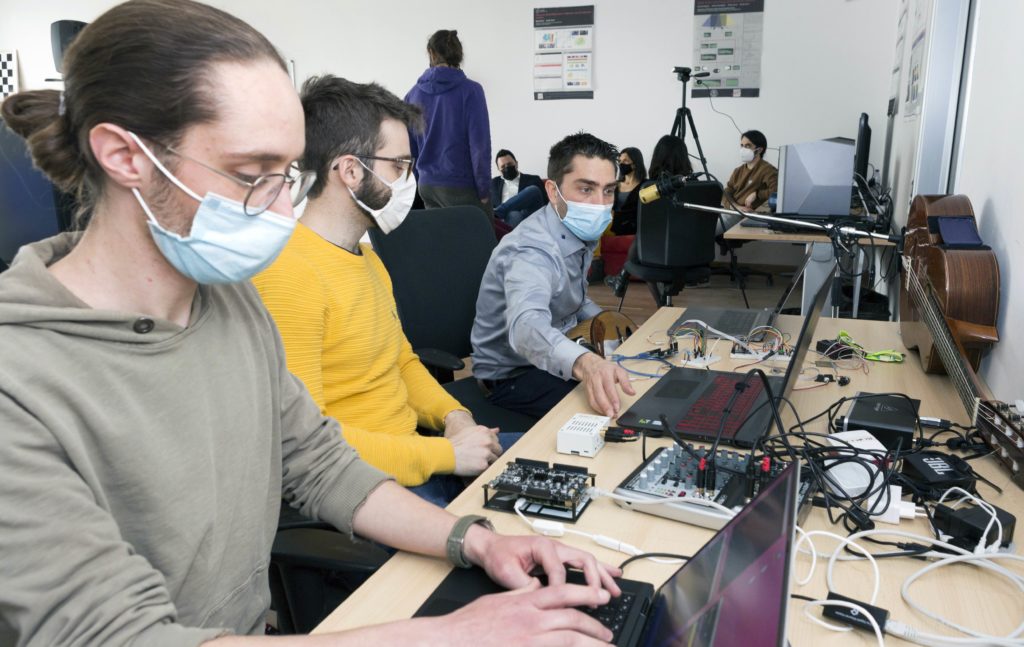Students and teachers working in the lab are committed to exploring new and innovative research areas in Human-Computer Interaction, Sound and Music Computing, as well as creative, intelligent, and multisensory systems. CIMIL explores future user interfaces at the intersection of human-computer interaction, artificial intelligence, design, psychology, as well as XR and wearable systems.
Our research team focuses on three main areas and combination thereof:
- Creative technologies: We develop new systems to support and enhance human creativity, with a particular focus on music technologies such as novel digital musical instruments, interfaces for the audience, and the Internet of Musical Things paradigm.
- Intelligent interactive systems: We create interactive systems leveraging artificial intelligence techniques, focusing in particular on the use of Semantic Web methods and real-time machine learning on embedded systems.
- Multisensory interactive systems: We focus on the study of systems that interact with users by leveraging multiple sensory modalities, such as vision, audition and haptics, in particular using the virtual reality and augmented reality media.
We are currently carrying out research in a number of a different fields including:
- Internet of Musical Things
- Internet of Audio Things
- New Interfaces for Musical Expression
- Virtual and Augmented Reality
- Embedded audio
- Musical Haptics
- Musical XR
- Technology-mediated audience participation
- Real-time Music Information Retrieval
- Multisensory locomotion in immersive environments
- Semantic Web
- Haptic technologies
- Multisensory Perception
- Affective Computing
- Accessible technologies
We are particularly interested in conducting research on topics related to intelligent musical instruments, novel experiences for musicians and audiences, as well as design and evaluation of innovative multisensory experiences for health and well-being.
We use a variety of technologies available at our facilities, such as virtual reality headsets, haptic wearables, low-latency audio and sensor processing boards, ultra-reliable low-latency audio networking systems, and motion capture systems.
Our research is funded by a number of projects and results into publications, systems, and software & datasets, while also generating technology transfer and outreach initiatives.
CIMIL fully adheres to the principles of open science, by making all its publications as green or gold Open Access, as well as releasing open-source software and open datasets.
